Missouri House Democrats spoke to reporters ahead of a committee hearing in which eight bills dealing with transgender issues will be presented, and announce they have formed the Equality Conference.
Tag: Doug Clemens
VIDEO: Local control of charter schools press conference
Representative Doug Clemens (D-St. Ann) spoke to reporters about his House Bill 2847, which he says seeks to return Missouri’s charter schools to local control.
Missouri adds historic Hawken rifle to list of State Symbols
A rifle that was created in St. Louis and was integral to the shaping of the West is now Missouri’s Official State Rifle.
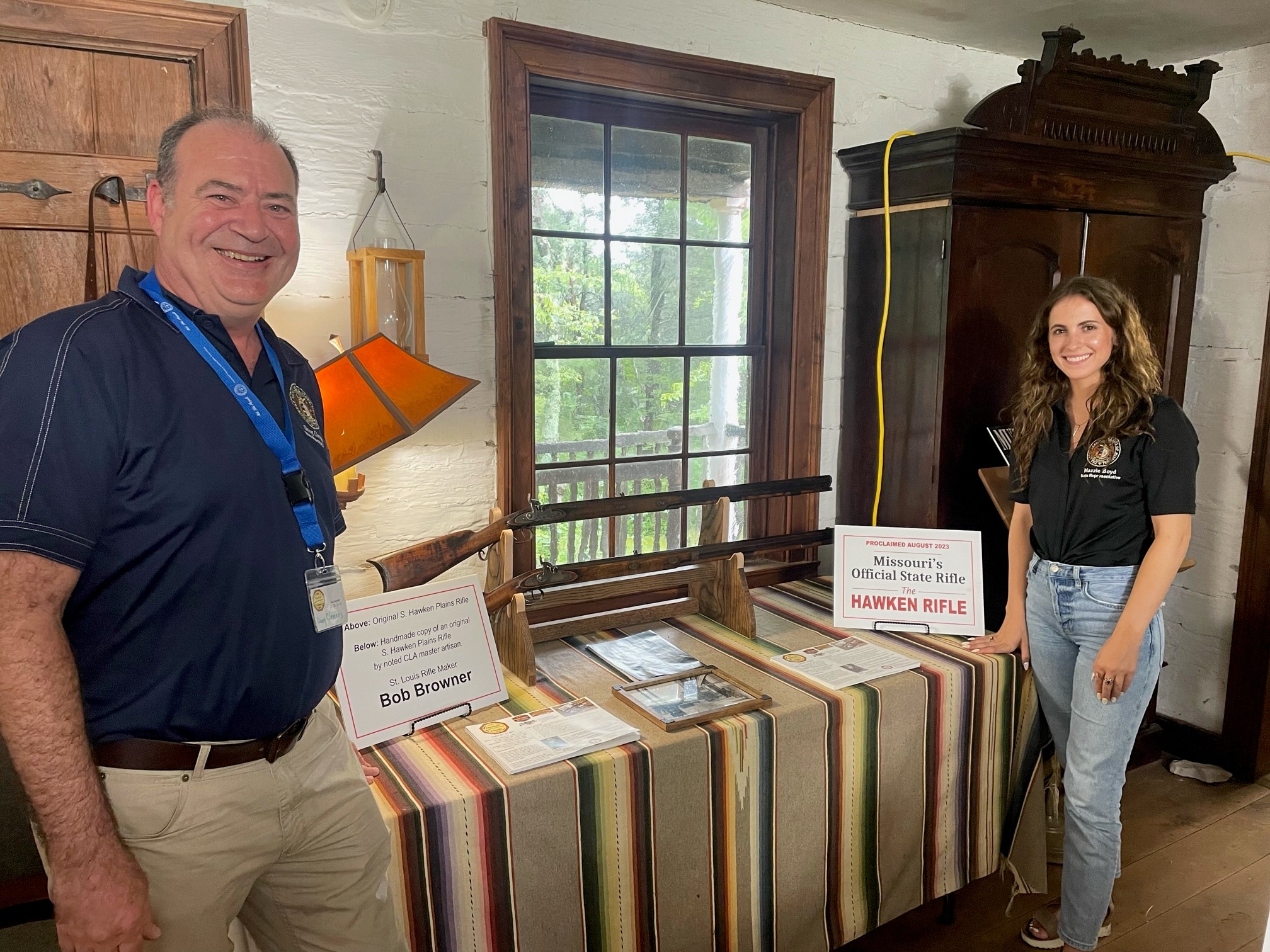
The Hawken muzzle-loading rifle was created by Jacob and Samuel Hawken, brothers who learned gunsmithing from their father before opening a shop in St. Louis in 1815. As the Rocky Mountain fur trade was getting underway, the brothers created the rifle meet the needs of fur trappers, explorers, traders, and others venturing out into then-largely unexplored parts of what today is the United States, west of Missouri.
Legislators hope that by making this one of the symbols of the state, it will draw people to learn more about this part of history.
“With the fur trade era, this just opened up the entire West, and the fact that it started right here in Missouri, I think is just incredible. People couldn’t just go to Wal-Mart and just go buy clothes,” said Representative Mazzie Boyd (R-Hamilton), who sponsored the idea. “I think it’s just a whole different world that sometimes people just don’t even think about.”
Representative Doug Clemens (D-St. Ann) also carried the state rifle legislation, after a gunsmith friend of his approached him about the idea. Clemens, who has a minor in history, said the Hawken gave those in the frontier a reliable, high-quality weapon that was effective at very long range.

House members this past session heard from historians who said giving the Hawken this state designation would be appropriate.
“It’s about more than just the gun. It’s about the history of the western fur trade and how that was the economic engine for the State of Missouri around 1825, first coming out of the mountains into St. Louis and then being shipped all over the world to be used in beaver hats and fur hats and things like that,” said Paul Fennewald, former state Homeland Security coordinator and historian.
He said it was actually one of the state’s first executives who spurred the rifle’s creation.
“It was a change from the long guns … the Pennsylvania guns. Once they started going west, that gun needed to be stouter because it had to go so far on horseback and survive in the mountains and so forth,” said Historian and Dekalb County Commissioner Kyle Carroll. “There’s nothing that would compare to the reputation that the Hawken had, the significance of it.”
Representatives Boyd and Clemens both, at the recent Hawken Classic event in Defiance, had to chance to fire both an original Hawken and a replica. Both say they shot well with it, and they were given plaques for supporting the rifle’s state symbol designation this year. Both said it was an honor to fire the 190 year-old original, which Boyd notes, is very valuable.
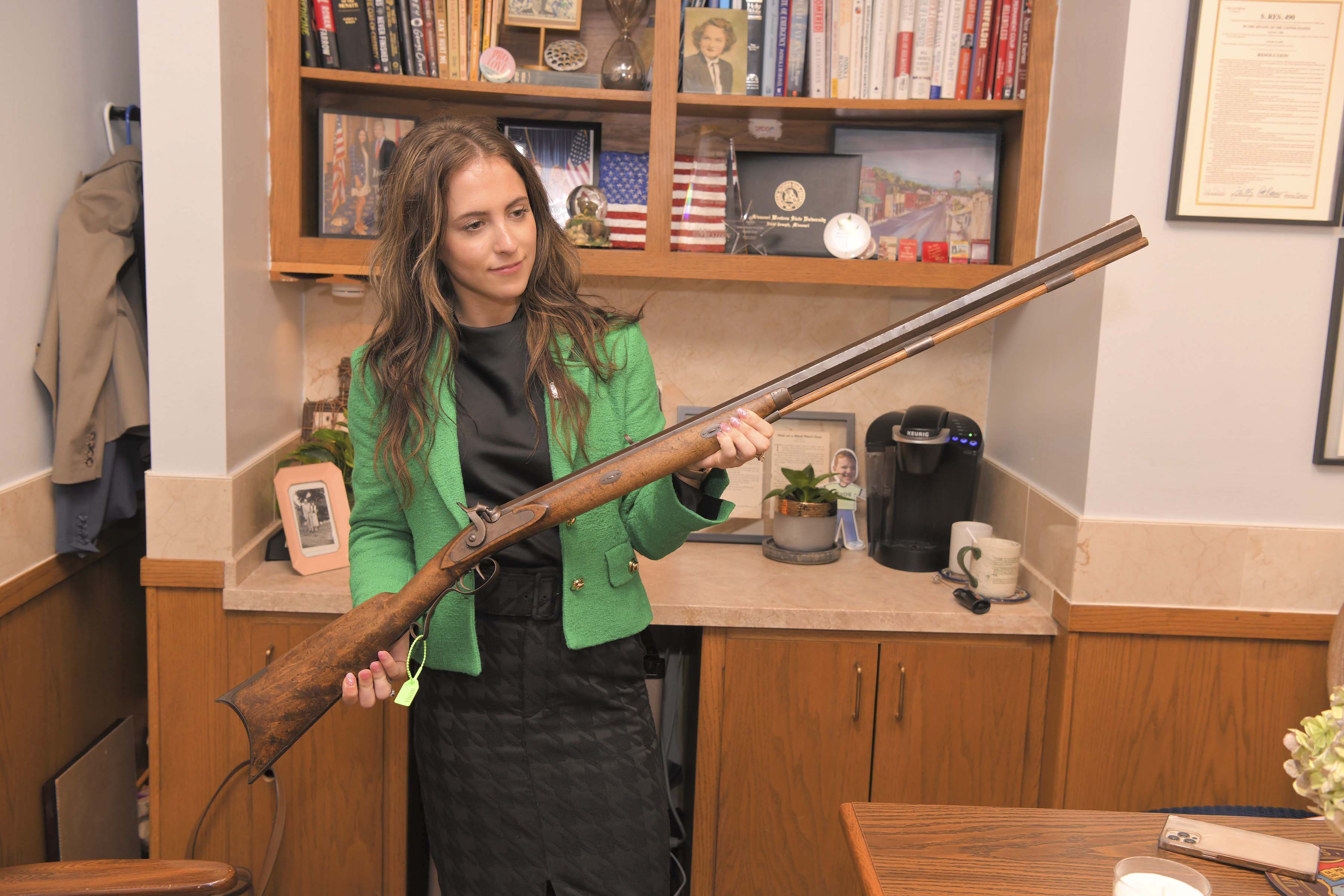
“If you want to get an original Hawken it’s over six figures now.”
The replica Hawken they fired is expected to go on display in the Missouri Capitol, as an addition to the State Museum on the Capitol’s first floor. Clemens is looking forward to having fun with that.
“I’ve been joking that’s going to be one of my ‘old man’ things,” he said. “I’m going to go in the Capitol and I’m going to point at that rifle behind the glass and I’m going to say, ‘I shot that gun!’”
Missouri becomes at least the 10th state to have a firearm among its state symbols. That Hawken rifle language was added to Senate Bill 139, which was signed into law in July.
Bipartisan effort seeks best way to help Missourians who owe for unemployment overpayments
One week after hearing from the Department of Labor about the state’s efforts to seek repayment of erroneous unemployment payments from struggling Missourians, a bipartisan slate of House members is debating the best way to provide relief.
The Special Committee on Government Oversight has heard that of roughly $150-million in overpayments, only a small portion – roughly a quarter or less – came from the state’s unemployment trust. State statute requires the Department to get that paid back.
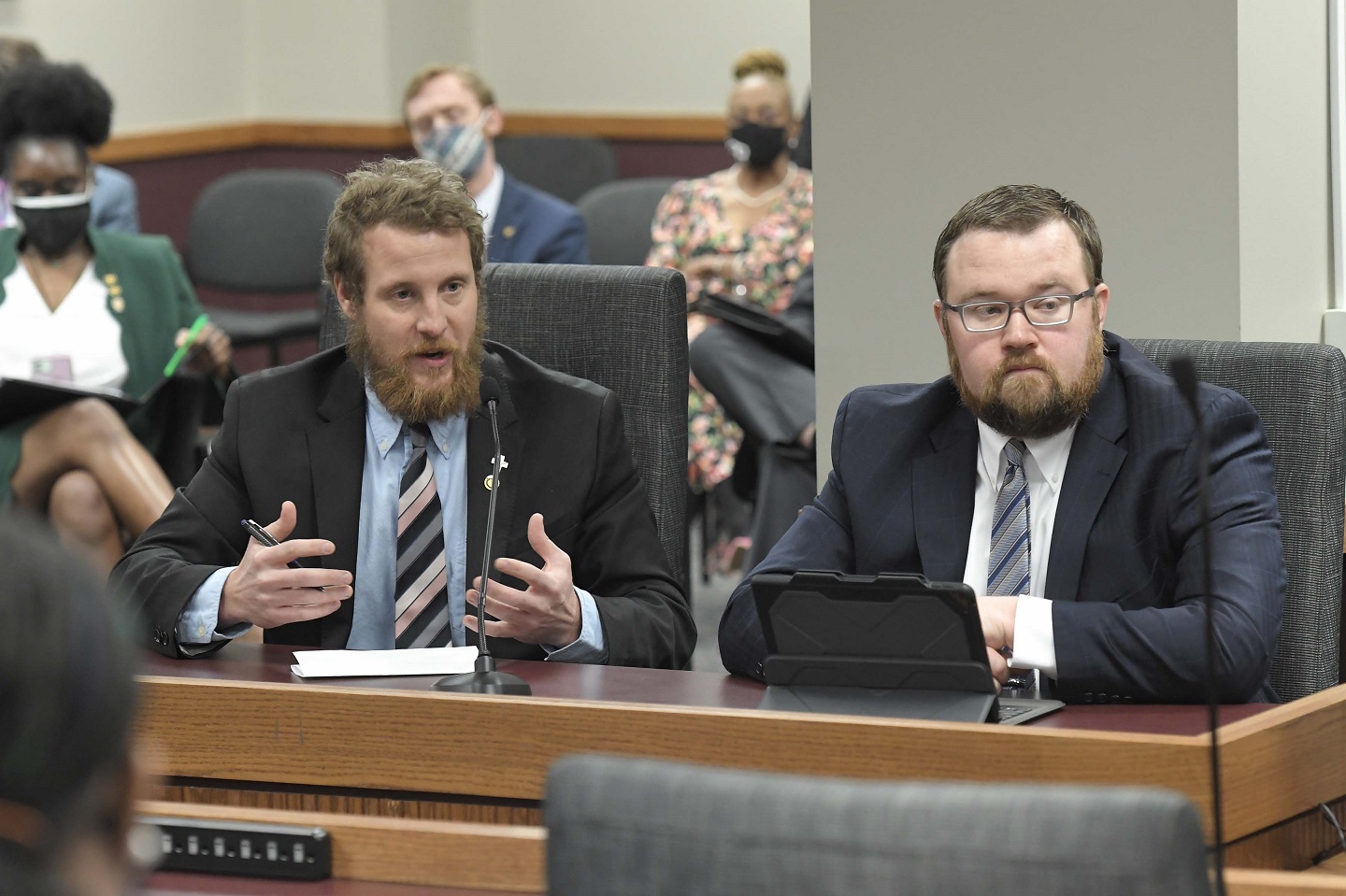
The larger portion comes from federal covid relief, the repayment of which the federal government has said states can choose to waive. Missouri Governor Mike Parson (R) has told his Department he wants it to be paid back.
The committee held a hearing on six bills – three filed by Republicans and three by Democrats – and a resolution filed by a Democrat, to deal with the issue.
The big question before lawmakers is whether to require that Missourians pay back overpayments out of the state fund. Committee members from both parties say they would like to waive all repayment, but some are questioning whether that can be done. They are unanimous about finding a way to waive the federal repayments, but some think the state portion might have to be recouped.
Shell Knob Republican Scott Cupps said a priority for the Department is to maintain the integrity of the state’s unemployment trust. His bill is one of those that would waive repayment of federal funds, but require Missourians to pay back state overpayments.
Cupps, who sits on the House Budget Committee, is one of those concerned that to waive the repayment of state benefits, the state would have to replenish the fund. This could come from other core budget functions, such as schools or transportation.
St. Louis Democrat Peter Merideth, also a Budget Committee member and sponsor of the resolution, noted that Governor Parson has proposed putting $500-million in federal CARES Act relief funds into the state’s unemployment trust. He suggests that would be a way to waive repayment of state overpayments while maintaining the fund.

Cupps and other Republicans said they would consider that option.
“The main thing that I talked to the Department about was maintaining the integrity of the trust,” said Cupps. “If it’s already been discussed that we were gonna throw some CARES Act money in there … it is something that could be a tool in the toolbox … it’s something we maybe should look at.”
Five of the six bills filed are largely the same. Committee Chairman Jered Taylor (R-Republic), the sponsor of one of them, said his intention is to pare them down into one bill and to have the committee vote next week on that and the resolution.
The legislation dealing with unemployment overpayments includes: House Bill 1085 (Taylor), House Bill 1083 (J. Eggleston – R, Maysville), House Bill 1050 (Cupps), House Bill 1036 (LaKeySha Bosley – D, St. Louis), House Bill 1035 (Doug Clemens – D, St. Ann), House Bill 873 (Ian Mackey, D-St. Louis), and House Concurrent Resolution 30 (Merideth).
Earlier story: House Members Denounce State’s Seeking Payback of Unemployment Benefits
House members denounce state’s seeking payback of unemployment benefits
House members from both parties are not happy that Missourians are being asked to pay back unemployment assistance they received in error through no fault of their own.
Department of Labor Director Anna Hui told the Special Committee on Government Oversight overpayments are “kind of built into” the unemployment system. The Department is expected to make an eligibility determination and get a payment out to an applicant within 14 days, generally based solely on information provided by the applicant. As additional information comes in, often from the applicant’s current or past employers, it could prove he or she was not eligible.
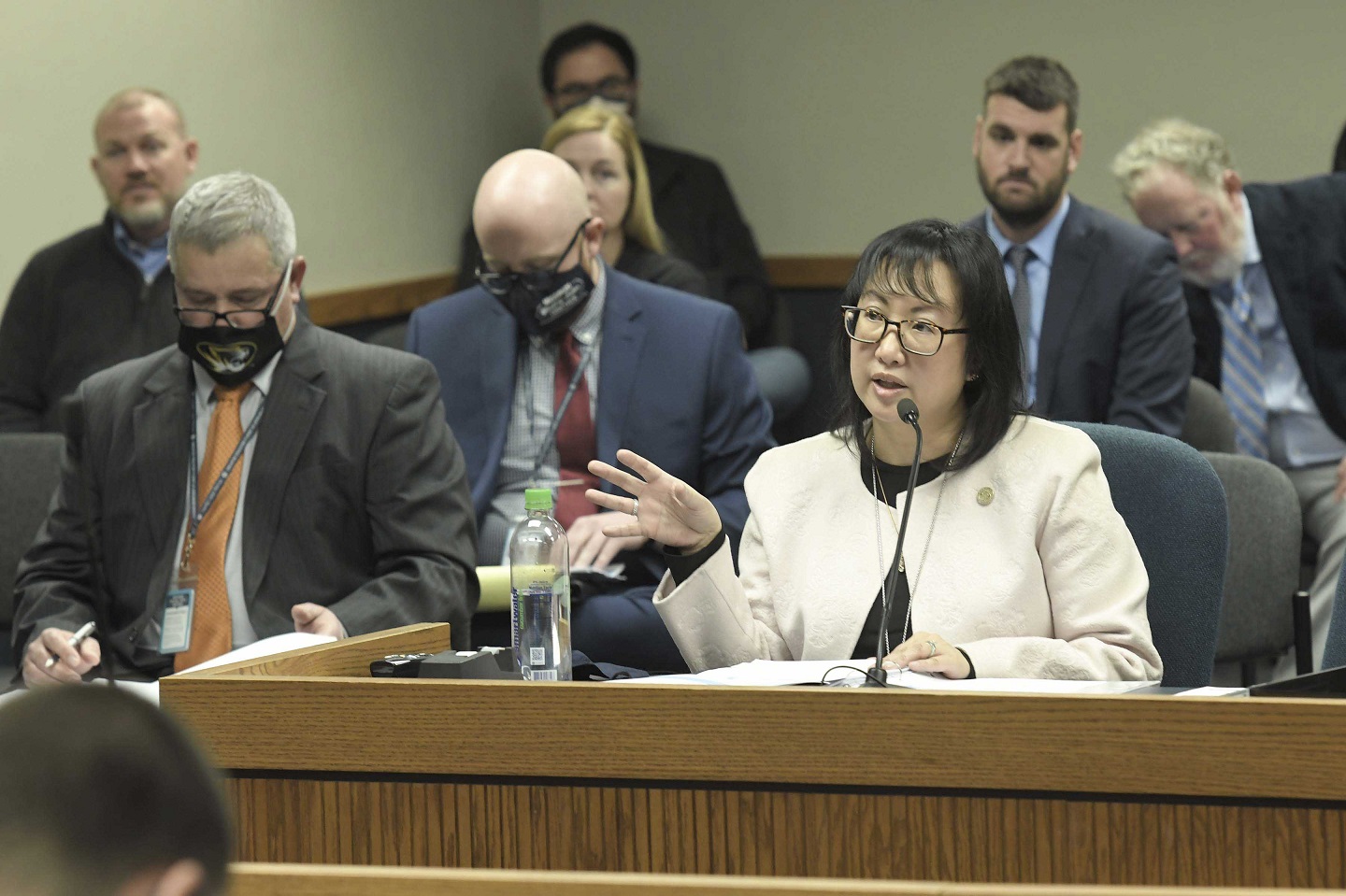
She said for 2020 that amounted to about $150-million in benefits that the Department paid out and now wants back.
Hui told the committee Governor Mike Parson (R) has made clear that he wants the Department to seek collection of those overpayments, viewing them as taxpayer dollars that went to ineligible individuals.
Several legislators said they have heard from constituents who have been asked to pay back thousands of dollars in state or federal relief, sometimes months after they received it. One constituent was asked to repay about $23,000.
“You’re going to be hard-pressed to find a more fiscally conservative person in here than me, but I think we screwed up as a state government, to ask folks [for that money] back this late in the game,” said Representative J. Eggleston (R-Maysville).
St. Ann representative Doug Clemens (D) said for Missouri to ask people already struggling financially due to covid to pay back thousands of dollars is wrong.
“Need I remind you of our median income in this state? Most people in my district make $26,000 a year, and you’re asking for $11,000 payback?” said Clemens. “We’re talking about keeping Missouri’s economy going. We’re talking about equity and conscience … [It’s] taxpayers’ money, it’s these people’s money, and frankly we’re in a crisis. They need to keep it.
Representatives, including Raychel Proudie (D-Ferguson), said the reasons given to individuals for their ineligibility were not always clear. She read a letter the Department sent to one of her constituents telling them they had to repay for a “miscellaneous reason.” Proudie called that “unacceptable.”
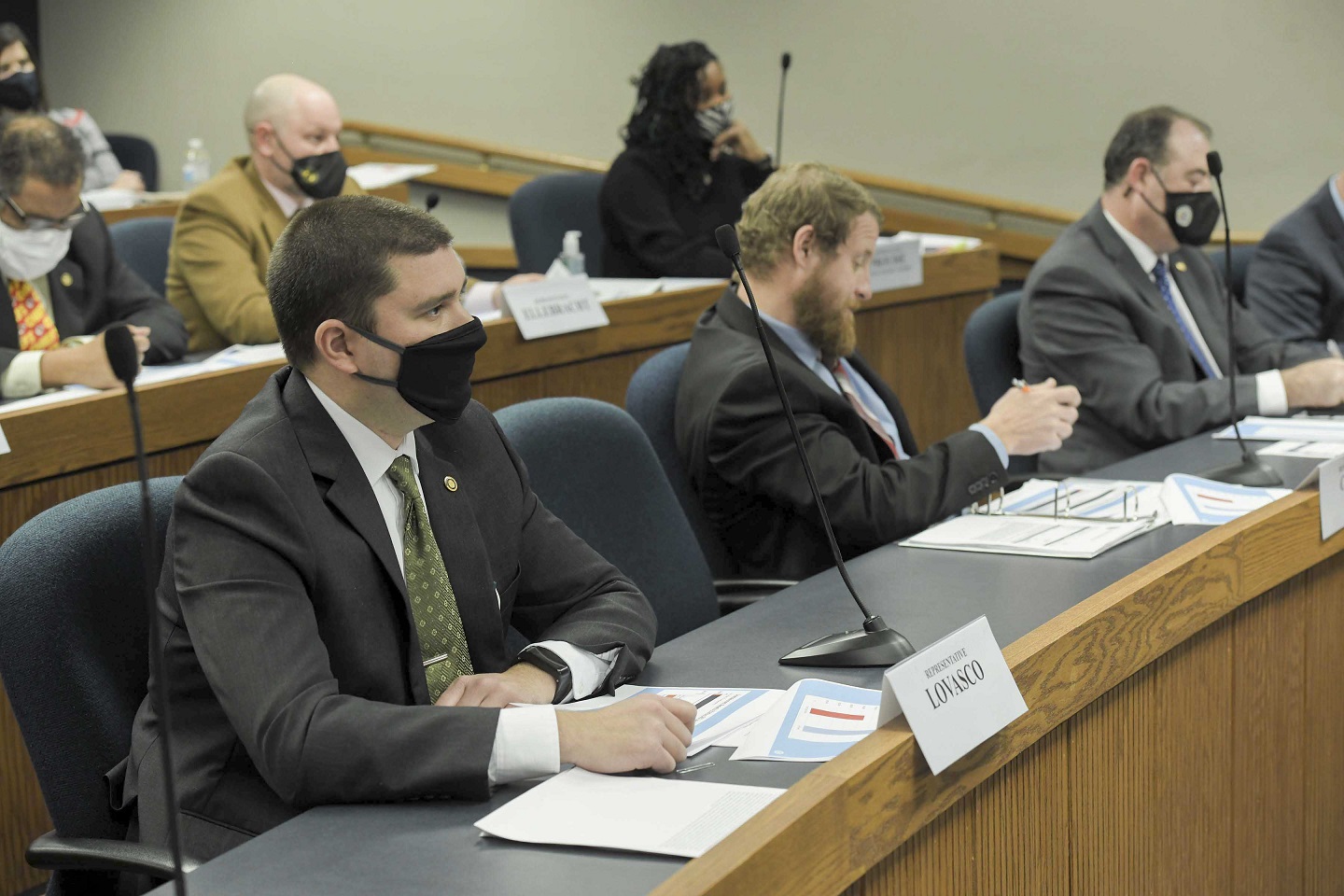
Federal directives have given states the option not to require repayment of assistance from the federal government, which makes up the majority of the $150-million the Department overpaid. Hui explained that Missouri is choosing to seek repayment of federal relief.
Proudie thinks the state shouldn’t be expending its resources to pull money from Missouri’s economy just to send it back to the federal government, and Representative Scott Cupps (R-Shell Knob) agrees.
“It may be as low as only $30-million of it’s from the [state] trust and $120-million of it is federal funds … you are not going to catch Scott Cupps in favor of rounding up money out of Missouri’s economy and sending it to Nancy Pelosi and Joe Biden in Washington D.C.” said Cupps. “The feds are literally telling us, ‘Hey, forgive it. Forgive it.’”
The Department is required by state statute to collect overpayments out of the state fund.
Dan Thacker represents a union including about 500 school bus drivers and monitors. He said many of them make salaries that would put them near the poverty level, yet roughly 400 are being asked to pay back thousands of dollars.
St. Joseph Republican Bill Falkner said any legislative action will have to balance the waiving of repayment by Missourians with protecting businesses, as some of these overpayments are charged to them.
Committee members also spoke directly to Missourians during the hearing. Cupps said the repayment situation is adding to already heightened stress for struggling Missourians. He wants them to know he and other legislators are paying attention, and are looking for a solution.
“There’s somebody that could get a letter in the mail that could say that they owe the state $7,200 back, and there could be divorces because of this,” said Cupps. “I want people to know this: do not do anything dumb because the state has sent you a letter that says you owe them money. Don’t do it. If you’re stressed out about it stop being stressed.”
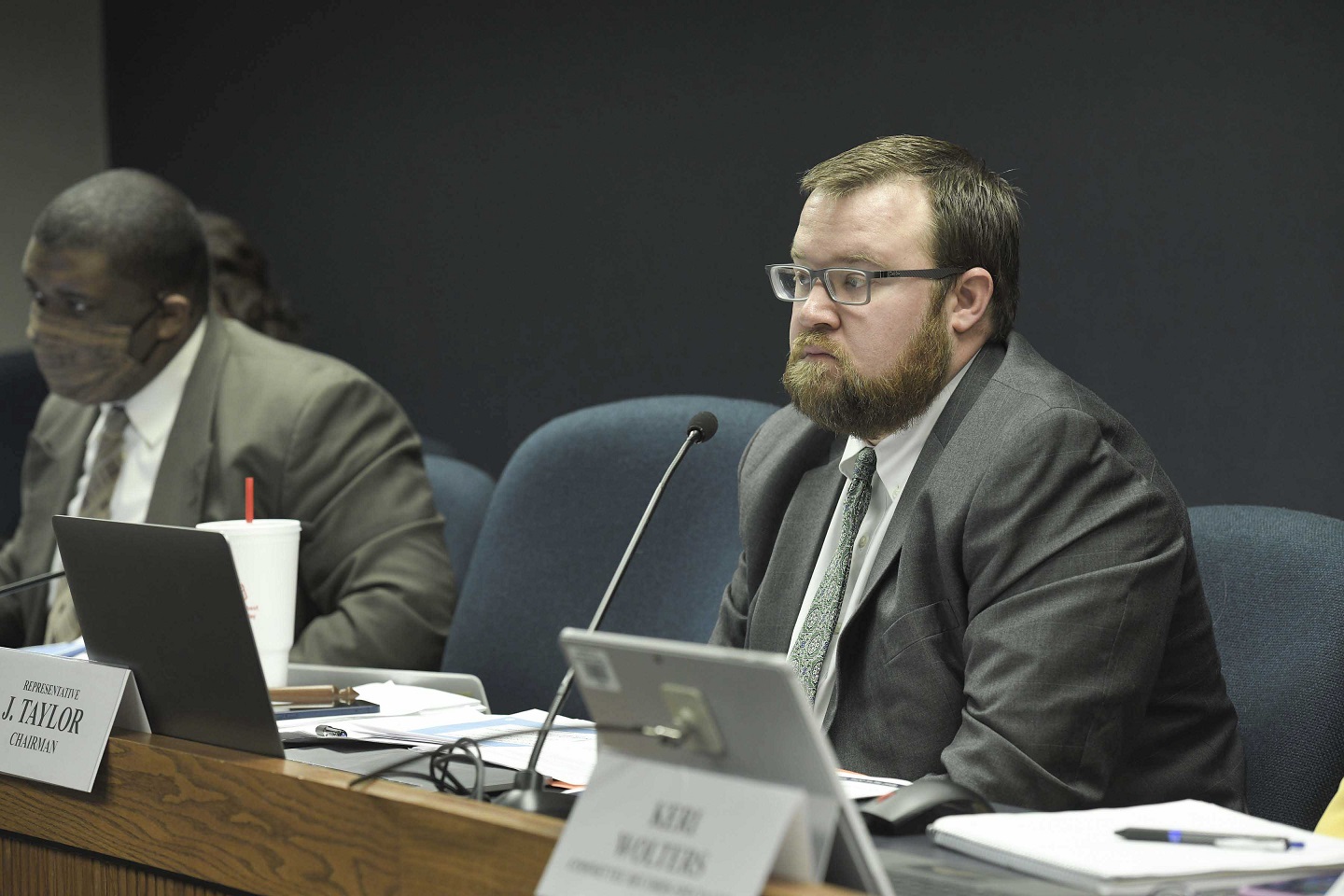
Liberty representative Mark Ellebracht (D) asked Hui whether it makes financial sense for Missouri to seek these repayments.
Hui told the committee that Missouri is on pace to need a loan to support the state’s unemployment trust, likely by around June. She did not offer a projection of how great that loan might be. She said this could cause employers to have to pay more, as that loan is repaid.
Witnesses and lawmakers alike suggested that repayment decisions have seemed arbitrary and inconsistent, with some people being ordered to pay back only federal funds, some to pay back only state funds, and some told to pay everything or nothing.
Three Democrats have filed bills to address unemployment relief overpayments: Clemens, LaKeySha Bosley (St. Louis), and Peter Merideth (St. Louis). The committee’s chairman, Jered Taylor (R-Republic) and Representative Cupps are developing proposals.